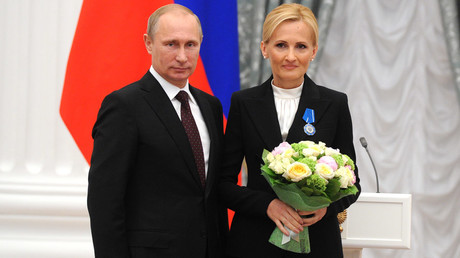Russia has prepared a new UN convention on countering computer crime because it believes the current document could potentially threaten the sovereignty of independent states, a leading Russian business daily reports.
According to Kommersant, the Russian Foreign Ministry prepared the draft convention ‘On Cooperation in Countering Informational Crime’ some time ago, and presented it to UN experts at a conference this week in Vienna, Austria.
The newspaper released a description and extracts from the document, noting that it had never officially been made public.
Moscow sees the new draft as a necessary replacement for the Budapest Convention of 2001, developed by the Council of Europe.
Russia is the only nation participating in the Council of Europe not to have signed the Budapest Convention. The main reason for this is that paragraph 32 of the convention allows trans-border access to stored computer data during cybercrime investigations by the special services of various nations.
The Russian authorities believe that granting such broad powers to foreign special services could undermine national security and sovereignty.
The Russian draft does not allow for trans-border access to stored data without a license from national security agencies, and also has a special paragraph dedicated to the protection of signatories’ national sovereignty.
The list of crimes contained in the draft convention includes unlawful interception and changing of data, disruption to the work of computer networks, creation of viruses and malware, as well as simple theft with the use of computer technology, violation of copyright laws, distribution of child pornography, and others.
The document also details possible scenarios of international cooperation in fighting computer crime – such as joint investigations, information-sharing about criminal activities, and the handing over of suspects.
It also provides for the setting up of a special contact center, which would work 24/7 and offer urgent help in the investigation of computer crimes, the detention and handover of suspects, and court procedures on computer crime.
Russia also proposes holding regular conferences under aegis of the UN for nations that enter the convention, as well as setting up a permanent international commission on the technical means for countering computer crime.
Russia presented a draft convention on information security to the UN in 2011, but back then the US and EU nations subjected the document to harsh criticism, mostly because of Moscow’s alleged intent to establish stricter control over its national segment of the internet.
In mid-2016, Russia introduced a set of amendments to its national laws seriously tightening state control over internet and other electronic communications. In particular, the new law requires communications companies to hand over encryption keys to state security agencies on demand, allowing them to read encrypted data. Non-compliance is punished with heavy fines. However, a wave of protests from Russian businesses as well as pro-business politicians caused lawmakers to allow for future changes that would minimize the losses that the new scheme could bring to the business community.







